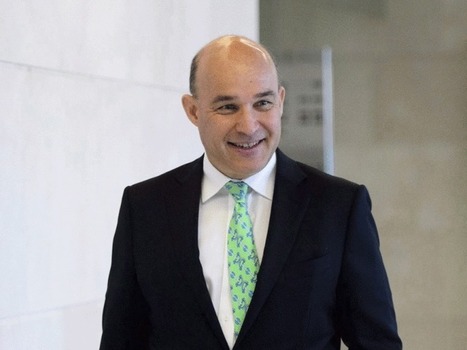 Your new post is loading...
A parliamentary committee is examining recent changes to the administration of the Investment Canada Act, the federal regime for reviewing foreign acquisitions of Canadian businesses. [...] We believe enhanced reviews will work better for Canada if three goals are met:
(1) First, speedy decisions on acquisitions of distressed assets. Most enhanced scrutiny reviews will use a national security test that is opaque and can take 200 days or longer. And if these really are distressed assets, and if there are lots of them, we will need more timely decisions to save firms and the jobs associated with them.
(2) Second, transparency around the definition of “critical sector” and about issues raised in the review process. Australia openly declared all sectors critical, while France listed such areas as food safety, defence, energy, AI, quantum computing and cyber security, among others. In Canada, we have left “critical sectors” undefined beyond health.
(3) Third, keeping economic security at the forefront. The legal basis for enhanced reviews will fall almost exclusively under the national security provisions of the act, not the economic-based “net benefit” rules. Are takeovers of distressed firms national security or economic issues? We think economic security is mainly at play, even when Chinese firms target technology businesses or specific elements of the energy sector.
OTTAWA — Unclear rules in Canada around intellectual property have given aggressive actors like China backdoor access to sensitive national security assets, two technology experts warned, as concerns run high over the threat of foreign takeovers. Jim Balsillie, former Blackberry head and chair of the Council of Canadian Innovators, told a House committee on Monday that current foreign investment rules fail to properly account for new technologies and IP rights, and “profoundly” need a rethink in an increasingly digital economy. Balsillie said Ottawa has for years scrutinized foreign takeovers based on the value of the deals, or according to vague “strategic interest” outlines, while allowing foreign governments access to critical research and intellectual property — a move he said is “akin to putting an additional bolt lock on the front door, while advertising that our screen door on the side is open.” The House of Commons industry committee is studying potential changes to the Invest in Canada Act amid heightened concerns around foreign takeovers. Some experts last week warned the committee against a unique threat posed by Chinese state-owned enterprises, which can be used to advance the geopolitical ambitions of the country. [...] Some experts last week warned that defining strategic industries or technologies could prove difficult, as reasons for the justification would be nearly impossible to prescribe. [...] “Everybody would want their industry to become strategic,” Patrick Leblond, professor of international affairs at University of Ottawa, told the committee last week. “It is difficult to distinguish what constitutes a strategic industry.”

|
Scooped by
Institut sur la gouvernance (IGOPP)
October 23, 2019 9:13 AM
|
It’s still feels slightly odd that Just Eat, which only recently seemed to be a smartphone app plus a few blokes on mopeds, is a FTSE 100 company. But it’s time to acknowledge modern munching habits. Just Eat is now the target of two takeover bids, the latest being £4.9bn in hard cash. That definitely makes it a grown-up business.
The gatecrashing bidder is Prosus, the Amsterdam-listed offshoot of South African giant Naspers, and it must start as a favourite to prevail. A cash bid normally beats an all-share offer, which is all that is being pitched by Takeaway.com, also out of the Netherlands. As the saying doesn’t quite go, a pizza in the hand is worth two in the oven.
In Does Revlon Matter: An Empirical and Theoretical Study, we examine the effect the seminal case of Revlon v. MacAndrews & Forbes Holdings has on the takeover process. We examine this through a novel M&A dataset of 1,913 transactions from 2003-2017. Our unique dataset contains details of the private merger negotiation process before public deal announcements, including the number of bidding rounds, timing of bids, bid premiums, and indicators for single versus multiple bidding parties.
Lord Denning, a highly quotable British judge, once remarked: “As a moth is drawn to the light, so is a litigant drawn to the United States.”[1]. Some reasons for this strong attraction are obvious: (1) the U.S. (and only a few other nations) authorize opt-out class actions; (2) the U.S. permits (and generously awards) contingent fees; (3) the U.S. has no “loser pays” rule (and most other countries do); and (4) the U.S. uses juries in civil cases and permits punitive damages.

|
Scooped by
Institut sur la gouvernance (IGOPP)
February 5, 2019 9:58 AM
|
A vast literature studies the effects of antitakeover provisions (ATPs) on firm value. The academic consensus is that ATPs harm firm value because they partly insulate managers from the threat of takeover, and that view has become very influential. Prominent studies find that empire building through corporate acquisitions is the main channel of value destruction by entrenched managers (Masulis, Wang, and Xie, 2007; Harford, Humphery-Jenner, and Powell, 2012).
This post examines litigation challenging M&A deals valued over $100 million announced from 2008 through 2017, filed on behalf of shareholders of publicly traded target companies.

|
Scooped by
Institut sur la gouvernance (IGOPP)
January 19, 2018 7:58 AM
|
The maker of $900 parkas is up 150% since its debut

|
Scooped by
Institut sur la gouvernance (IGOPP)
November 22, 2017 9:19 AM
|
The “supercharged IPO,” a new and increasingly popular financial transaction, has fundamentally changed the nature of IPOs for many companies. Traditionally, an

|
Scooped by
Institut sur la gouvernance (IGOPP)
September 12, 2017 9:29 AM
|
Trian’s P&G whitepaper is a unique support document for an activist proxy contest. Its 93 pages are replete with suggestions and criticisms that should be taken into account by companies in connection with their preparations to avoid an activist attack and for dealing with an activist. The whitepaper raises the not unusual issues of comparative peer TSR, declining market shares, executive compensation in relation to performance, board complacency and weak corporate governance, among others. The unique aspects are:
So far, 2017 isn’t quite the year many deal forecasters were expecting. But at the midway point, it looks on track for a finish that won’t leave dealmakers gritting their teeth.
|
When a company controlled by the Chinese government bought a stake last month in Norwegian Air, a troubled airline, it was just the kind of opportunistic acquisition that European political leaders were worried about. Officials in Brussels and in numerous European capitals have been hurriedly erecting legal obstacles to such deals. Their fear: that Chinese investors backed by Beijing will exploit the pandemic to snap up financially distressed European companies at bargain prices. On Wednesday, the European Commission, the European Union’s executive branch, unveiled proposals intended to prevent foreign investors from using government subsidies to outbid competitors for European assets. The proposal is clearly aimed at China, which often provides financial support to key industries. Unlike the United States, which screens foreign investment for security threats, Europe has few tools to scrutinize deals. The proposals are “like security at the door,” Margrethe Vestager, the European competition commissioner, said at a news conference in Brussels. “They are about checking for trouble before it happens.” [...] The action comes as countries including Austria, the Czech Republic, Germany and Poland are in the process of giving themselves more power to examine acquisitions and block investments seen as a threat to national interests. [...] European countries still want Chinese money. Even with new restrictions, it will be easier for Chinese investors to buy assets in Europe than in the United States, which screens foreign investments for threats to national security. But European governments have become warier of Chinese intentions and are demanding that China give European companies the same freedom to invest in Chinese companies that Chinese investors have in Europe. China often requires foreign companies to share sensitive technology and operate through joint ventures with Chinese partners. [...] Ms. Vestager said that the commission was not singling out China or trying to keep foreign investors out. “There is no specific country we are thinking of,” she said. “We want reciprocity and a level playing field.”
Last month, we described the increased threat of activists and acquirors seeking to capitalize on the COVID-19 sell-off to build positions in high-value companies at depressed prices. Even before the current crisis emerged, we recommended that all U.S. public companies regularly review their defense profile and have a shareholder rights plans “on the shelf.” For companies uniquely impacted by the crisis—especially those whose market capitalization has fallen below $1 billion—we suggested they re-assess their vulnerabilities in this new environment and consider whether now was the right time to adopt a rights plan to ward off potential opportunistic behavior. Some companies have done just that—since March 1, 2020, 24 U.S. public companies have adopted a defensive shareholder rights plan (6 other U.S. public companies have adopted NOL rights plans).
Recently in Arkansas Teacher Retirement System v. Alon USA Energy, Inc., the Delaware Court of Chancery (in an opinion by Vice Chancellor McCormick) held, on a motion to dismiss, that Delek US Holdings, Inc.’s acquisition of Alon may have violated Section 203 of the Delaware General Corporation Law, Delaware’s anti-takeover statute.
Since the Trans Union case (Smith v. Van Gorkom, 1985), it has been considered effectively mandatory for target directors to seek and consider a third-party “fairness opinion” with supporting financial analyses and valuations (henceforth “fairness valuations”) before accepting a takeover offer. Despite their ubiquity in M&A, their role is, to put it mildly, controversial.

|
Scooped by
Institut sur la gouvernance (IGOPP)
February 5, 2019 10:25 AM
|
Peter Altmaier, Germany’s economy minister, has called for the creation of a state investment fund that would step in to pre-empt foreign takeovers of big German companies, in the latest sign of growing protectionist sentiment in Berlin.
When Aurora Cannabis Inc., one of Canada’s largest and fastest-growing cannabis companies, submitted a proposal to acquire all the common shares of CanniMed Therapeutics Inc. in mid-November 2017, it triggered a nasty battle between the two publicly traded medical marijuana producers that would not be resolved until the end of February 2018.
In a new cross-nation study, we discuss our findings on how the takeover market affects stock-price crash risk, defined as the likelihood of a sudden, drastic decline in the stock price of a firm...

|
Scooped by
Institut sur la gouvernance (IGOPP)
January 16, 2018 9:25 AM
|
Press reports indicate that Spotify, the music streaming company, is planning an initial public offering in March or April of this year, and that it plans to use a novel “direct listing” approach that has not previously been used at the New York Stock Exchange.[

|
Scooped by
Institut sur la gouvernance (IGOPP)
September 29, 2017 9:37 AM
|
In a recent New York Times article, Steven Davidoff Solomon listed several possible explanations for a significant decline in the number of initial public offerings (IPOs). Among the most interesting was that there are many large and successful high-tech acquirers such as Facebook, Google, and Microsoft that are willing to pay top dollar for high flying unicorns (private companies with equity values greater than $1 billion) before they become public companies. The ability of the private markets to provide financing may have matured to the point where the advantages of financing through the public markets are no longer as great. Shareholder activism may also be scaring off companies that would normally enter the public markets. The relatively low number of IPOs over the last several years is simply a reversion back to what we should consider to be normal, perhaps 150 per year but with lots of volatility in that number.

|
Scooped by
Institut sur la gouvernance (IGOPP)
September 11, 2017 9:27 AM
|
U.S. and European companies continue to receive bids to sell themselves and their significant assets to companies based in the People’s Republic of China.
The shareholder empowerment movement (the “movement”), driven primarily by public pension funds and union-related funds with over $3 billion in assets, has renewed its effort to eliminate, restrict, or at least discourage companies from creating dual class share structures in initial public offerings (IPOs). The impetus was the issuance of non-voting stock in the recent Snap Inc. IPO. Such advocacy, if successful, would not be trivial, as many of our most valuable and dynamic companies, including Alphabet (Google) and Facebook, have gone public by offering shares with unequal voting rights.
|




 Your new post is loading...
Your new post is loading...













